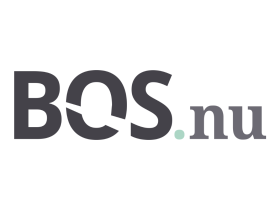 Reading Time: 3 minutes
Reading Time: 3 minutes
The Ministry of Finance has proposed that the temporary restrictions on the online gambling market, that were introduced on July 2 this year, should be extended to June 30, 2021. The proposed restrictions are a weekly deposit limit of a maximum of SEK 5,000 and that bonus offers are limited to a maximum of 100 SEK.
The Ministry of Finance claimed during the spring that the gaming on online casino was strongly increasing during the pandemic and that the government needed to protect the Swedish consumers.
The minister stated that there where an increase in problem gaming during the spring, but that statement was not based on facts. Neither The Swedish Gambling Authority nor other authorities did see that as a fact.
Scientific studies
This is also something that later on was proofed by scientific studies conducted. https://www.frontiersin.org/articles/10.3389/fpubh.2020.554542/full
“Results: Total gambling activity decreased by 13.29% during the first phase of the outbreak compared to forecast. Analyses of online gambling data revealed that although betting decreased substantially in synchrony with a slight increase in online casino gambling, there was no increase in likely problematic, high-intensity gambling and neither did total online gambling increase.
Conclusions: This first, preliminary study revealed no increase in Swedish gambling activity, total or specifically online, in the first phase of the covid-19 outbreak. Future research should examine whether pandemic-induced transitioning between gambling modalities and/or increased participation in gambling, leads to long-term effects on prevalence of problem gambling.”
Moving to the unlicensed market
Setting a deposit limit of 5,000 SEK per week does not solve the need to help people who have a gambling problem as it is always possible to gamble at different companies. Alternatively, you can play at the unlicensed companies. The effects will instead be that the individual gaming companies cannot follow the individual players’ behaviour and, if necessary, support it.
7 out of 10
It is an extremely worrying development in Sweden that 7 out of 10 of those who seek help for gambling problems have banned themselves from playing breaks and still continue to play. The idea of a game break is good, but there is a lack of power against the unlicensed gaming companies that target Swedish players and then the problems remain. A first step in resolving this is to prevent the possibility of paying with a number of well-known Swedish payment services at the unlicensed gaming companies. We have to close the holes! (https://www.spelfriheten.se/ Pelretin, organization for gambling addiction.)
This means that the blocking service Spelpaus (Spelpaus enables Swedish gamblers to paus them from all gambling on licensed operators https://www.spelpaus.se/ ) does not fulfil any major function as long as a number of different gaming companies without a Swedish gaming license are allowed to flourish freely. Several help seekers have also told us that these gaming companies provide the opportunity to pay with a number of well-known Swedish payment services
Lack of tax revenue
In 2019, the licensed companies in Sweden paid SEK 3.6 billion to the Treasury. An amount that is now steadily declining in step with the shift to the unlicensed companies.
Focusing on those who try to behave
No unlicensed company or person linked to unlicensed gaming activities has been fined or prosecuted since 1 January 2019, at the same time 26 fines have been issued for a total of 236.4 MSEK against the licensed gaming market.
The government’s mission should be to protect consumers and that should be their priority. On the contrary, the effects have been that they have shifted vulnerable players to the unlicensed companies. Sweden has failed to protect the vulnerable players and the extended regulations will not protect them.





